No Country For Old Men Ending Explained | Screen Rant
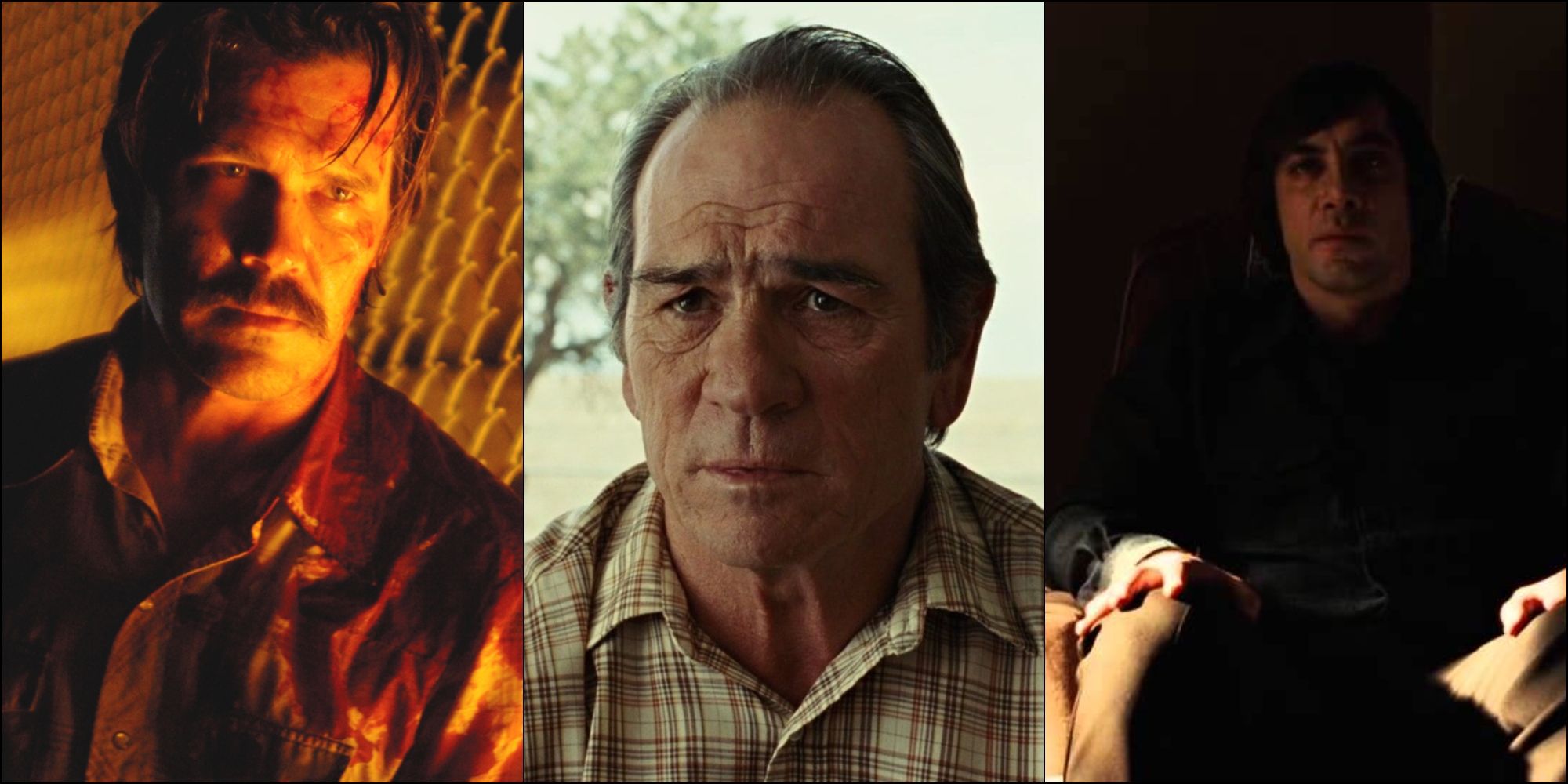
No Country For Old Men is commonly regarded as a modern classic, yet the ending proved to be divisive due to its final scene. No Country For Old Men is an extremely faithful adaptation of author Cormac McCarthy’s novel, which follows a man named Llewelyn Moss who steals a bag of drug money before finding himself pursued by the seemingly ethereal hitman Anton Chigurh. The story also involves the jaded Sheriff Bell, who hopes to save Moss and stop the trail of destruction Chigurh leaves in his bloodthirsty wake.
No Country For Old Men is the closest the Coen brothers have come to making a pure action movie, with the film featuring a number of superbly crafted set pieces. While the movie has the look and feel of a classic Western, the morality of the story proves to be much more complex. There are no clear-cut heroes and villains in the narrative, exemplified by Moss' heroic moments which are counterbalanced by his initial theft. No Country For Old Men’s seemingly anticlimactic ending also upset audiences upon release, with many expecting a more traditional showdown between hero and villain.
Related: Best Netflix Westerns
The No Country For Old Men finale's ambiguity is still hotly debated over a decade later, prompting a serious revision of the film. Exploring what No Country For Old Men really means and why it proved so divisive is key to understanding the nuance of the film's subtle coda. Here's the ending to No Country For Old Men explained.
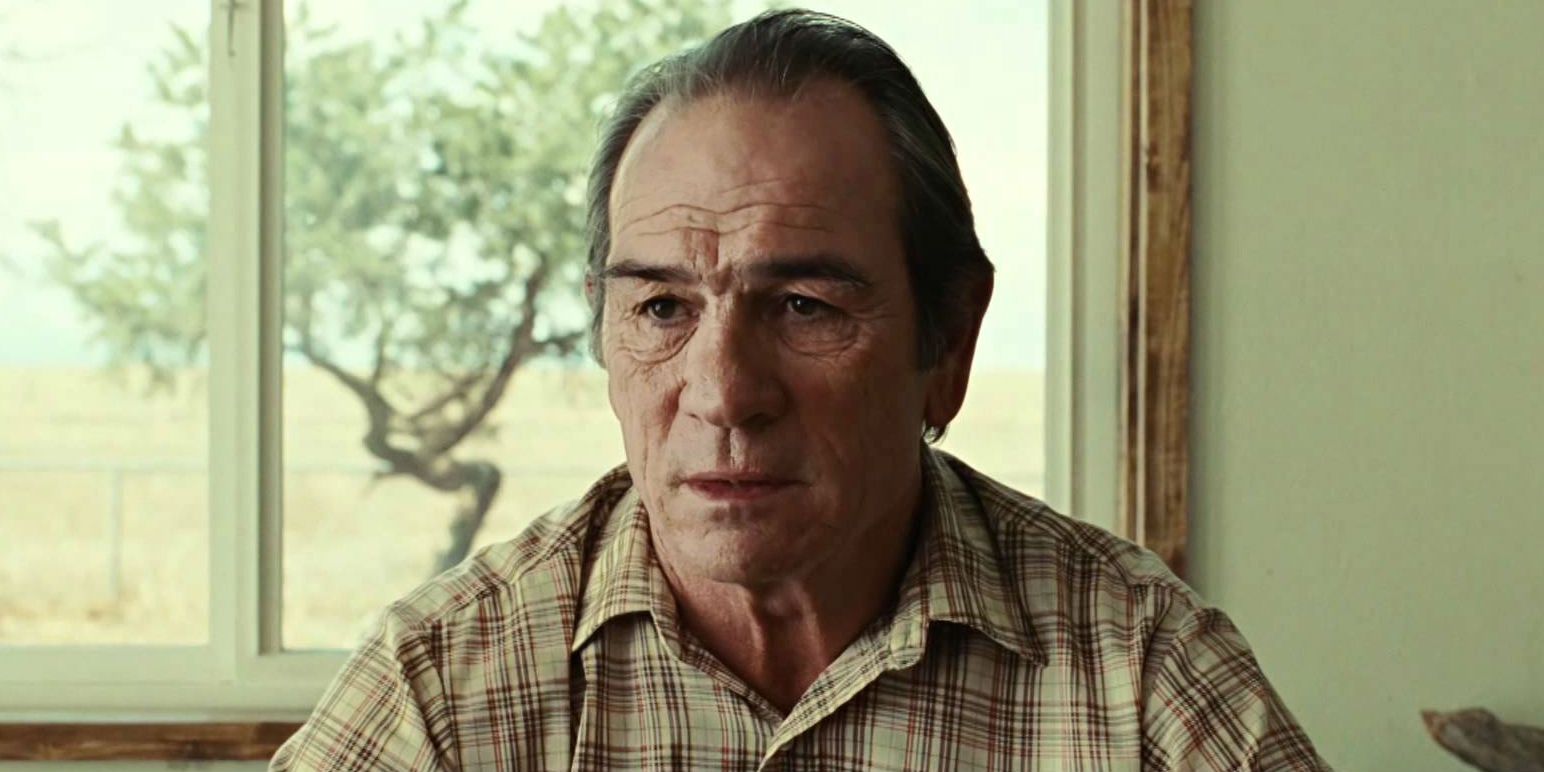
After spending much of No Country For Old Men following Moss (Josh Brolin) as he tries to stay one step ahead of Chigurh (Javier Bardem), the character is shockingly killed offscreen by assassins. Chigurh later recovers the money Moss stole and, true to his earlier threat, comes to kill Moss’ wife Carla Jean. Throughout the movie, Chigurh occasionally leaves the fate of potential victims up to a coin toss, believing faith will decide their survival. Carla Jean refuses to bet on Chigurh’s offer, placing the responsibility for the decision back on him and saving her life in the process.
Bardem's iconic hitman is involved in a traffic accident soon after he leaves Carla Jean's house, but despite his injuries, ends up waking away from the carnage he has wrought. The movie then cuts to Sheriff Bell (Tommy Lee Jones), in a self-induced exile following his failure to save Moss or recover the drug money. During this scene, Bell recounts two dreams he had the night before. The first involves meeting his father, who entrusts him with some money, but Bell agonizingly thinks he lost it. The second dream features father and son riding together through a snowy mountain pass on horseback, with Bell’s father riding ahead to light a fire in the darkness in front of them. Bell then reveals awakens from the dream at the same point each time before No Country For Old Men cuts to black.
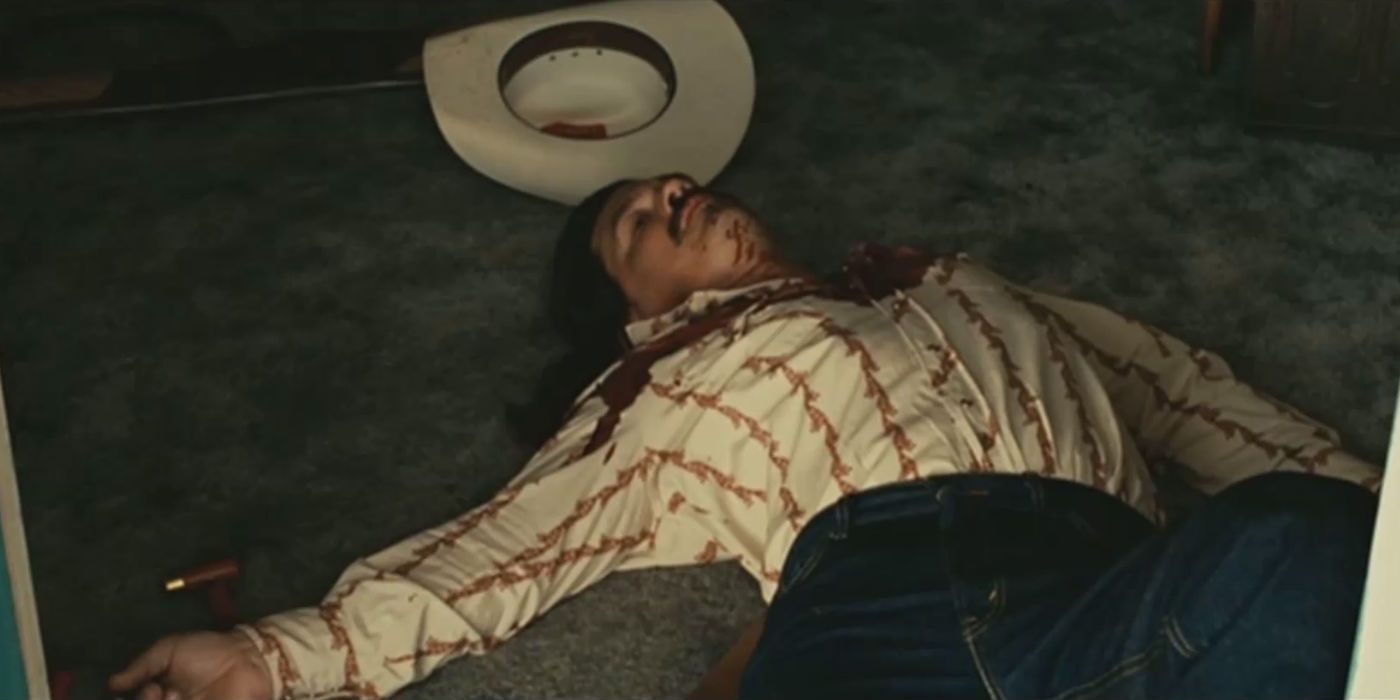
Bell’s allegorical dreams truly encapsulate the meaning behind Ethan Coen's No Country For Old Men. The retired sheriff doesn’t appear to give much thought to his first dream, but it symbolizes his lingering guilt over Moss’ death all the same. Just like in his dream, he was entrusted with a task but failed despite his promise to Carla Jean. It is implied Bell feels this failure on a subconscious level, but he can’t put the feeling into words, hence the dream.
Related: The Coen Brothers Movies, Ranked
The second of Bell's dreams is where audiences become split over its true meaning. Like Bell notes before recalling the second his dreams, he’s 20 years older than his father ever was, meaning he has become the old man his visions enact. In the dream, he and his father are back in simpler times, riding through the snow and cold together. From the opening narration, its clear Tommy Lee Jones' character Bell yearns for the past, where good and evil were clearly defined and the world makes linear sense to him. The fire his father is carrying is symbolic of a hope that the flame of those values will be carried forward into the darkness of the unknown future. That said, Bell suddenly waking up could also signify that not only do those traditions not exist, they never really did, with his awakening happening on a literal and spiritual level.
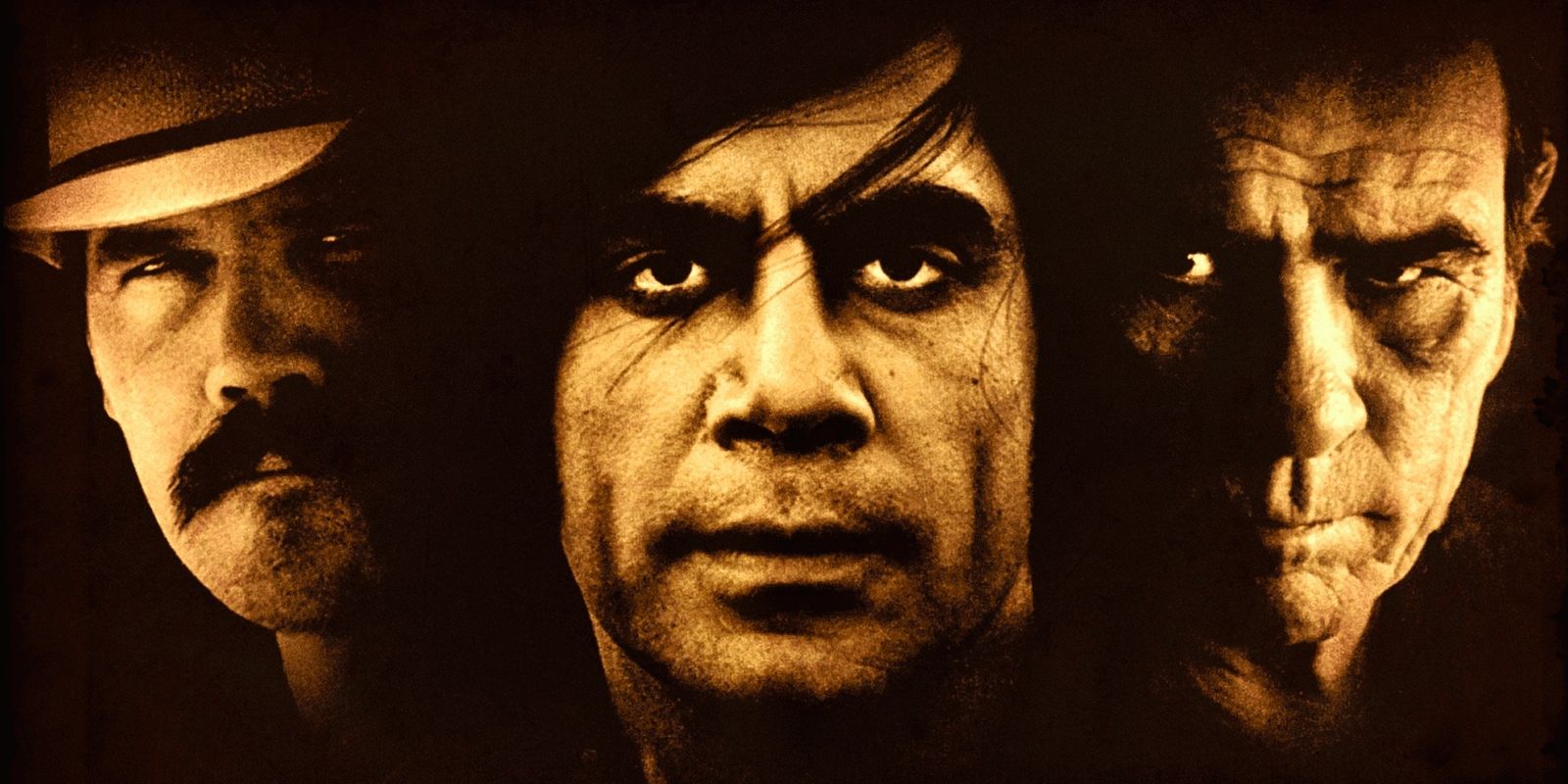
No Country For Old Men may look like a typical Western on a surface level, but in a more traditional narrative, Moss would have eventually killed Javier Bardem's Chigurh, reunited with his wife, and escaped. Instead, he winds up dead on a seedy motel room floor and causes Carla Jean's eventual execution. This moment in itself is shocking, but then there’s an expectation that Bell – who has been on the sidelines for much of the narrative – will step up, tracking down both the money and bringing Chigurh to justice.
Instead, Chigurh escapes and the only time Bell gets close to the assassin is when he enters a motel room and imagines the killer could be hiding in the shadows. No Country Ends For Old Men, therefore, ends with the ostensible hero and his wife dead and the villain escaping with the money. If that wasn’t already a bitterly important aggregatory pill to swallow for audiences, the final scene then features Bell hazily recounting two dreams without really explaining what they mean, and then cutting to black. This subverts just about every cinematic thriller convention imaginable, which is why some critics and audiences remain angry at No Country For Old Men’s ending to this day.
Related: Spoilers Hidden At The Start Of Movies
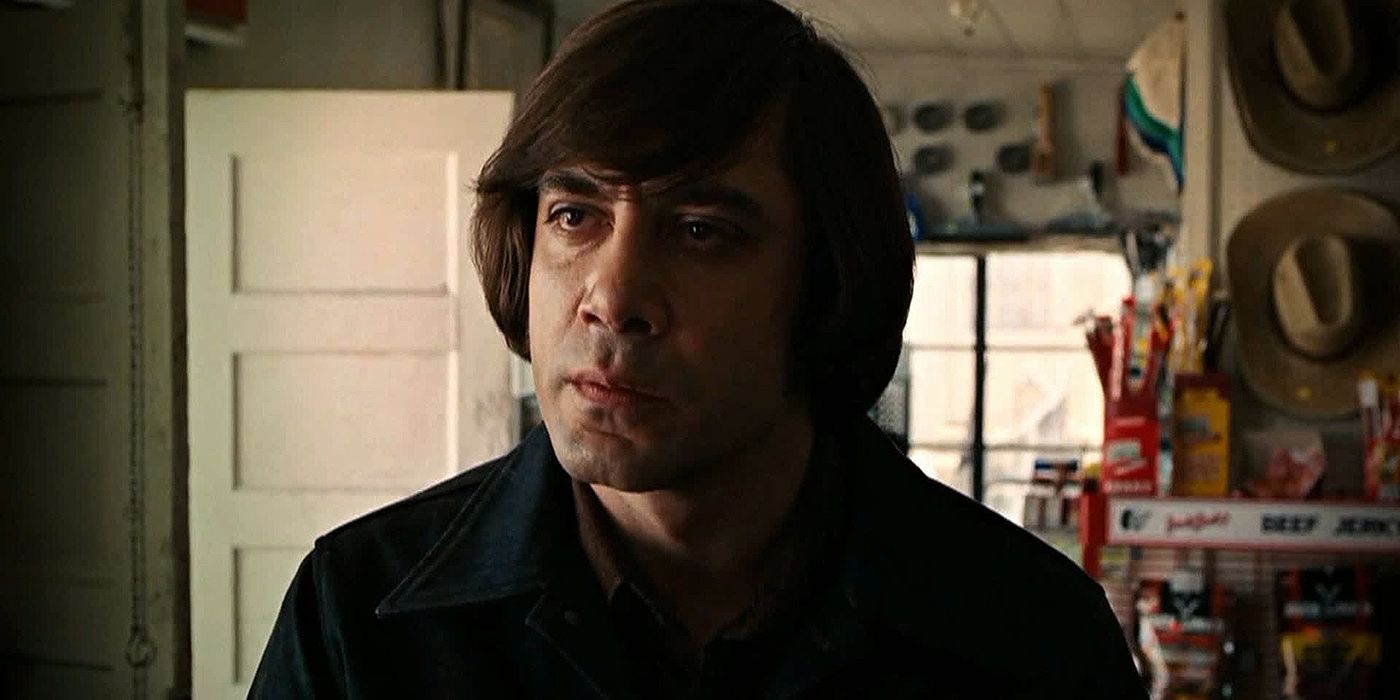
No Country For Old Men panders to a common misconception - and an intentional one - that the movie is really Moss’ story. However multiple viewings make clear that Bell is the true protagonist of No Country For Old Men, and the story involves his struggle as an “old” man to understand the world he lives in. The morals and problems of violence he’s confronted with make little sense to him, and his eventual retirement amounts to the character choosing to live what time remains to him in peace. While the hitman might not be supernatural, it’s shown time and again Chigurh's character represents death and the inevitability of fate.
Even Moss, an ex-Vietnam vet who is more than capable in a fight, is proven unable to outrun his own destiny which was decided the moment he took the money. While it would have been more satisfying to see Chigurh caught or killed, had Bell found him, the sheriff almost certainly would have died too. Far from being anticlimactic, the final scene of No Country For Old Men is a poetic summation of the movie’s core themes, and while it may not have seemed that way upon initial release, it was in actuality the only satisfying way for the story to end.
Next: Ballad Of Buster Scruggs: All 6 Endings Explained
Source: Screenrant
Post a Comment